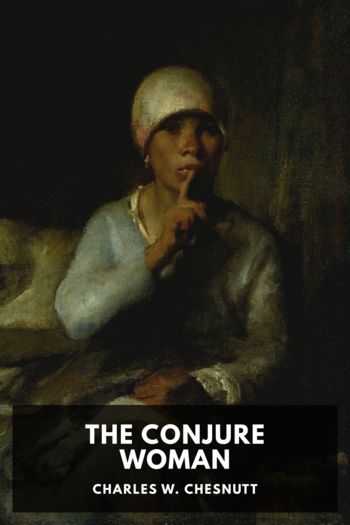Commentaries on the Gallic War, Julius Caesar [the chimp paradox TXT] 📗

- Author: Julius Caesar
Book online «Commentaries on the Gallic War, Julius Caesar [the chimp paradox TXT] 📗». Author Julius Caesar
Noviodunum was a town of the Aedui, advantageously situated on the banks of the Loire. Caesar had conveyed hither all the hostages of Gaul, the corn, public money, a great part of his own baggage and that of his army; he had sent hither a great number of horses, which he had purchased in Italy and Spain on account of this war. When Eporedorix and Viridomarus came to this place, and received information of the disposition of the state, that Litavicus had been admitted by the Aedui into Bibracte, which is a town of the greatest importance among them, that Convictolitanis the chief magistrate and a great part of the senate had gone to meet him, that ambassadors had been publicly sent to Vercingetorix to negotiate a peace and alliance; they thought that so great an opportunity ought not to be neglected. Therefore, having put to the sword the garrison of Noviodunum and those who had assembled there for the purpose of trading or were on their march, they divided the money and horses among themselves; they took care that the hostages of the different states should be brought to Bibracte, to the chief magistrate; they burnt the town to prevent its being of any service to the Romans, as they were of opinion that they could not hold it; they carried away in their vessels whatever corn they could in the hurry; they destroyed the remainder, by throwing it into the river or setting it on fire; they themselves began to collect forces from the neighbouring country, to place guards and garrisons in different positions along the banks of the Loire, and to display the cavalry on all sides to strike terror into the Romans, to try if they could cut them off from a supply of provisions. In which expectation they were much aided, from the circumstance that the Loire had swollen to such a degree from the melting of the snows, that it did not seem capable of being forded at all.
Caesar on being informed of these movements was of opinion that he ought to make haste, even if he should run some risk in completing the bridges, in order that he might engage before greater forces of the enemy should be collected in that place. For no one even then considered it an absolutely necessary act, that changing his design he should direct his march into the Province, both because the infamy and disgrace of the thing, and the intervening mount Cevennes, and the difficulty of the roads prevented him; and especially because he had serious apprehensions for the safety of Labienus whom he had detached, and those legions whom he had sent with him. Therefore, having made very long marches by day and night, he came to the river Loire, contrary to the expectation of all; and having by means of the cavalry found out a ford, suitable enough considering the emergency, of such depth that their arms and shoulders could be above water for supporting their accoutrements, he dispersed his cavalry in such a manner as to break the force of the current, and having confounded the enemy at the first sight, led his army across the river in safety; and finding corn and cattle in the fields, after refreshing his army with them, he determined to march into the country of the Senones.
Whilst these things are being done by Caesar, Labienus, leaving at Agendicum the recruits who had lately arrived from Italy, to guard the baggage, marches with four legions to Lutetia (which is a town of the Parisii, situated on an island of the river Seine), whose arrival being discovered by the enemy, numerous forces arrived from the neighbouring states. The supreme command is entrusted to Camulogenus, one of the Aulerci, who, although almost worn out with age, was called to that honour on account of his extraordinary knowledge of military tactics. He, when he observed that there was a large marsh which communicated with the Seine, and rendered all that country impassable, encamped there, and determined to prevent our troops from passing it.
Labienus at first attempted to raise vineae, fill up the marsh with hurdles and clay, and secure a road. After he perceived that this was too difficult to accomplish, he issued in silence from his camp at the third watch, and reached Melodunum by the same route by which he came. This is a town of the Senones, situated on an island in the Seine, as we have just before observed of Lutetia. Having seized upon about fifty ships and quickly joined them together, and having placed soldiers in them, he intimidated by his unexpected arrival the inhabitants, of whom a great number had been called out to the war, and obtains possession of the town without a contest. Having repaired the bridge, which the enemy had broken down during the preceding days, he led over his army, and began to march along the banks of the river to Lutetia. The enemy, on learning the circumstance from those who had escaped from Melodunum, set fire to Lutetia, and order the bridges of that town to be broken down: they themselves set out from the marsh,





Comments (0)